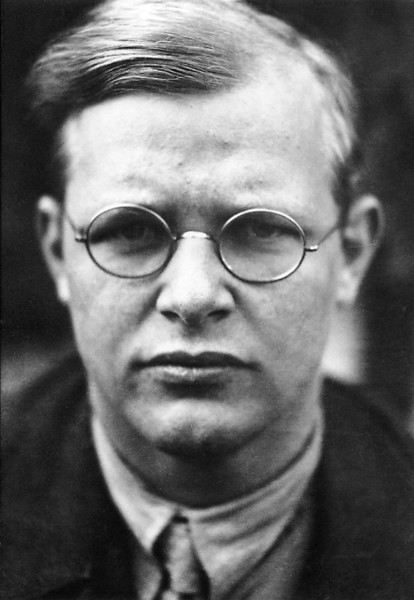Bonhoeffer Series: Part One || “A Story About Coming Home”
Part Two || “Disembodied Christianity”
As quickly as the Third Reich began its rule of Germany the Jews were put on notice. And immediately the German Church was thrust into the spotlight. Would the church follow the state, or would it choose to honor God’s Word? The German Christians chose to honor The Führer (meaning “leader” in German, a term used for Adolf Hitler) first, rather than the True Führer. They twisted the Bible to support their position, allowing their supposed Christian ministries to remain intact, with support of the state.
 In the years that would follow 1933, this question would define the split among the so-called “German Christians” and another church founded through the work of Bonhoeffer, the Confessing Church. It is this question that prompted Bonhoeffer to write the essay “The Church and the Jewish Question,” where he said:
In the years that would follow 1933, this question would define the split among the so-called “German Christians” and another church founded through the work of Bonhoeffer, the Confessing Church. It is this question that prompted Bonhoeffer to write the essay “The Church and the Jewish Question,” where he said:
“What is at stake is by no means the question whether our German members of congregations can still tolerate church fellowship with the Jews. It is rather the task of Christian preaching to say: here is the church, where Jew and German stand together under the Word of God; here is the proof whether a church is still the church or not” (Bonhoeffer: Pastor, Martyr, Prophet, Spy, pg. 155).
Many of the German Christians felt it necessary to fall in line, so to speak, for the sake of continued ministry. If the Nazis have the power to jeopardize a church’s ministry, better to follow their orders and teachings than become obsolete, or so the line of thought went.
Late in 1933 the German Christians all attended a national church conference, all wearing brown, as if to say to the Third Reich, “we are with you all the way.” In doing so, much of the church lost its ability to speak prophetically about the state of the state.
1934, pushed forward by the work and words of Karl Barth, the Confessing Church formed, unified as an alternative to the compromised church of the German Christians. In what is known as the Barmen Declaration, Barth wrote,
“We reject the false doctrine (of the national church formed by the “German Christians”), as though the Church were permitted to abandon the form of its message and order to its own pleasure or to changes in prevailing ideological and political convictions.”
While some have come to criticize the biography of Bonhoeffer’s life written by Eric Metaxas as trying to twist Bonhoeffer into the picture of a consummate conservative evangelical, there is no denying that Bonhoeffer pushed for God’s Word to be foundational for the ministry of the church. His actions, along with the day’s leading theologian Karl Barth, provided a water-shed moment for the 20th Century church, though it was not realized at the time.
Bonhoeffer and the Confessing Church have proven be on the right side of history with how they answered this question: will we, as the church of Christ, choose to allow our ministry to be first dictated by the Word of God, or the rule of man? And I believe this is a question that again finds itself at the forefront. Bonhoeffer paid a great price in how he answered the question. Are we prepared to do the same?
In recent years many understandings rooted within the Bible have been called into question. In the coming years the church will continue to be seen as more discriminatory for those Biblical understandings, and this is the question we must continue to ask:
Is our ministry in this world dictated by the rule of man or by the Word of God?
Christian ministry is founded on the Word of God, otherwise it ceases to be Christian and becomes merely ministry. I believe Bonhoeffer’s life presents a picture of power through an unwavering fortitude in God’s Word, as well as the persecution that will be endured for such a choice.